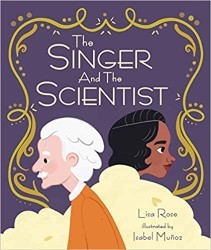Alex Maki’s elementary school class on Bainbridge Island, near Seattle, has started a new project. Each student has received the name and address of a potential pen pal who lives in Europe. Alex thinks his new pen pal, Charlie, is a boy. He is surprised to learn that Charlie is the nickname of a girl who lives in Paris. Charlie and Alex continue to correspond even after the pen pal project ends. They confide in one another, share jokes and cartoons, and gradually become close friends.
Then Pearl Harbor is bombed in an unexpected attack by Japanese forces. Alex has always known that he is the son of Japanese immigrants, but it never seemed important before; he knows he is a loyal, patriotic citizen of the United States. Unfortunately, many of his schoolmates and neighbors don’t see it that way. To them, anyone with Japanese features is a potential spy and needs to be harassed and ostracized. One day, FBI agents storm into Alex’s house and take his father away. His house is rudely and roughly searched, and even articles of purely sentimental value are destroyed. Despite the fears, worries, and insecurities that are features of his new life, Alex and Charlie continue to correspond; at times, this is Alex’s only comfort.
Charlie, meanwhile, is finding that living as a Jewish girl in France while the Nazis continue to gain power is becoming more difficult by the minute. Antisemitism is everywhere. The streets are hazardous, the terror is building, and suddenly yellow stars must be worn on Charlie’s clothes so she can be identified as a Jew when walking outdoors. She attempts to resist in whatever ways she can, but she faces horrors and dangers every day. Charlie’s link to Alex through their letters is a great comfort, a lifeline. The two continue to correspond, becoming closer than ever.
When the roundup of the Japanese community on Bainbridge Island is announced, Alex, his brother, and their mother have no choice but to be shepherded by soldiers to the Manzanar Relocation Center, a concentration camp for Japanese-American citizens who will be forced to remain under lock and key for the duration of the war. Alex, aware of the dangers faced by Charlie and her family, worries about her even as he and his family face hardships of their own.
Charlie has been faithfully writing to Alex all this time but, when her letters stop arriving, Alex, having heard news reports of Nazis rounding up Jews, becomes frantic about her safety. He is told that if he enlists in a segregated Japanese unit in the American army, his father will finally be released from prison. He also knows that being sent to Europe will enable him to start to search for Charlie.
War has often been compared to hell, and Alex’s experience fits the description, but he and his unit fight heroically. This unit actually existed and is part of the second World War’s military history. It was later acknowledged with honor and was highly decorated for bravery and heroic action. Alex’s search for Charlie is less successful. He traces her to Auschwitz and Dachau and hears about a revolt there in which she may have participated.
This elegantly written story shines with humanity and warmth. The connection between these two creative, caring, passionate people who have never met face-to-face, but are deeply connected soul-to-soul, pulsates with energy and glows with beauty. The author does not equate the two horrific, appalling tragedies of Manzanar and the Holocaust, understanding that the first was an abomination and a subversion of American ethics and values while the second was a genocide of historic and unprecedented proportion. Nevertheless, the tragic effects of each are portrayed in a manner that both educates and breaks the heart. Bravery and honor, as well as horror and heartbreak, were found in both. There is much to learn from each for a young reader living in the complicated world of today.
An author’s note and a comprehensive bibliography are appended to this highly recommended story and are useful for readers who wish to learn more about the history of the era.
Michal Hoschander Malen is the editor of Jewish Book Council’s young adult and children’s book reviews. A former librarian, she has lectured on topics relating to literacy, run book clubs, and loves to read aloud to her grandchildren.





